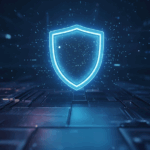What happens when your fridge, smartwatch, or even your office coffee machine starts collecting data? Who owns that information, and how safe is it? As billions of connected devices exchange data every second, the Internet of Things (IoT) is not just transforming industries; it’s rewriting the rules of data privacy and security. But as the digital and physical worlds converge, the line between convenience and vulnerability becomes thinner than ever.
In this era of hyper-connectivity, where everything from home thermostats to industrial sensors communicates through the internet, ensuring data protection has become both a challenge and a necessity. By hiring the top IoT company in India, you can ensure data privacy and security standards while utilizing the benefits of IoT systems.
This blog also explains how IoT is reshaping privacy norms, redefining security frameworks, and compelling businesses and individuals to think differently about data.
1. The Explosion of Connected Data
The number of IoT devices worldwide is expected to exceed 30 billion by 2030, generating a staggering amount of data every second. From healthcare wearables tracking heart rates to smart cities monitoring energy consumption, IoT systems are producing continuous streams of sensitive information.
However, this surge in connectivity also expands the attack surface, more devices mean more entry points for cybercriminals. Traditional data protection models designed by the top IoT companies in India for centralized systems are proving inadequate for the decentralized, device-heavy IoT ecosystem.
Organizations are now forced to develop new security frameworks that can handle real-time data exchange, distributed endpoints, and multi-layered networks.
Recommended reading: How IoT is Making Workplaces Smarter and Safer
2. The Shift Toward Data Transparency and Ownership
In the IoT landscape, data ownership has become a key ethical and regulatory concern. Who owns the information collected by a fitness tracker, the user, the manufacturer, or the cloud provider that stores it?
IoT is forcing governments and organizations to revisit privacy regulations like the GDPR (General Data Protection Regulation) and CCPA (California Consumer Privacy Act). These laws now emphasize user consent, data minimization, and transparency—principles that are becoming the foundation of modern IoT architecture.
3. Security by Design: The New Norm
In traditional software development, security often came as an afterthought. But IoT has flipped this paradigm, security is now integrated into the design phase itself.
This approach, known as “Security by Design,” means devices are built with encryption, authentication, and secure data transfer protocols right from the start. Manufacturers are implementing:
- End-to-end encryption to protect data in motion and at rest.
- Multi-factor authentication for accessing connected devices.
- Regular firmware updates to patch vulnerabilities proactively.
These practices are helping build consumer trust and reduce the risk of large-scale cyberattacks, such as botnets or ransomware exploiting weak IoT endpoints.
4. AI and Blockchain Strengthening IoT Security
To handle the complexity of IoT ecosystems, the best IoT companies in India are implementing technologies like Artificial Intelligence (AI) and Blockchain are being integrated to enhance data integrity and security.
- AI for Threat Detection: Machine learning models can detect unusual device behavior in real time, identifying threats before they cause harm. For instance, if a sensor suddenly starts transmitting data at odd hours, the AI system can flag or isolate it automatically.
- Blockchain for Data Integrity: Blockchain ensures tamper-proof transactions across IoT networks. Each device interaction is recorded in a distributed ledger, making it nearly impossible for attackers to alter or manipulate data undetected.
Together, AI and Blockchain are redefining the future of secure, transparent, and self-regulating IoT systems.
5. Challenges Ahead: The Need for Global Standards
While IoT offers immense benefits, the lack of universal security standards remains a major obstacle. Different countries and manufacturers follow varied protocols, creating inconsistencies that hackers can exploit.
Developing a global framework that governs data protection, device certification, and encryption policies is critical for ensuring IoT systems are safe and interoperable. Industry alliances and regulatory bodies are already pushing for common standards that define how IoT devices should handle user data.
However, this process requires collaboration between governments, the best IoT companies in India, and cybersecurity experts to balance innovation with accountability.
6. User Awareness: The Human Factor in IoT Security
Even with the most advanced encryption and protocols, the human factor remains one of the biggest vulnerabilities. Weak passwords, outdated firmware, or unsecured Wi-Fi connections can compromise even the smartest devices.
Educating users about best practices—like changing default credentials, enabling two-factor authentication, and updating devices regularly is essential for maintaining IoT security at the grassroots level.
Conclusion:
At Grizon Tech, the best IT company in India, we are committed to creating robust, intelligent, and secure IoT ecosystems that empower businesses without compromising privacy. As a leading tech company, we help organizations integrate advanced IoT solutions, AI-driven monitoring systems, and end-to-end data protection frameworks.
The future of IoT is bright, but only when it’s built on security, transparency, and trust, and Grizon Tech is helping shape that secure future every step of the way.






